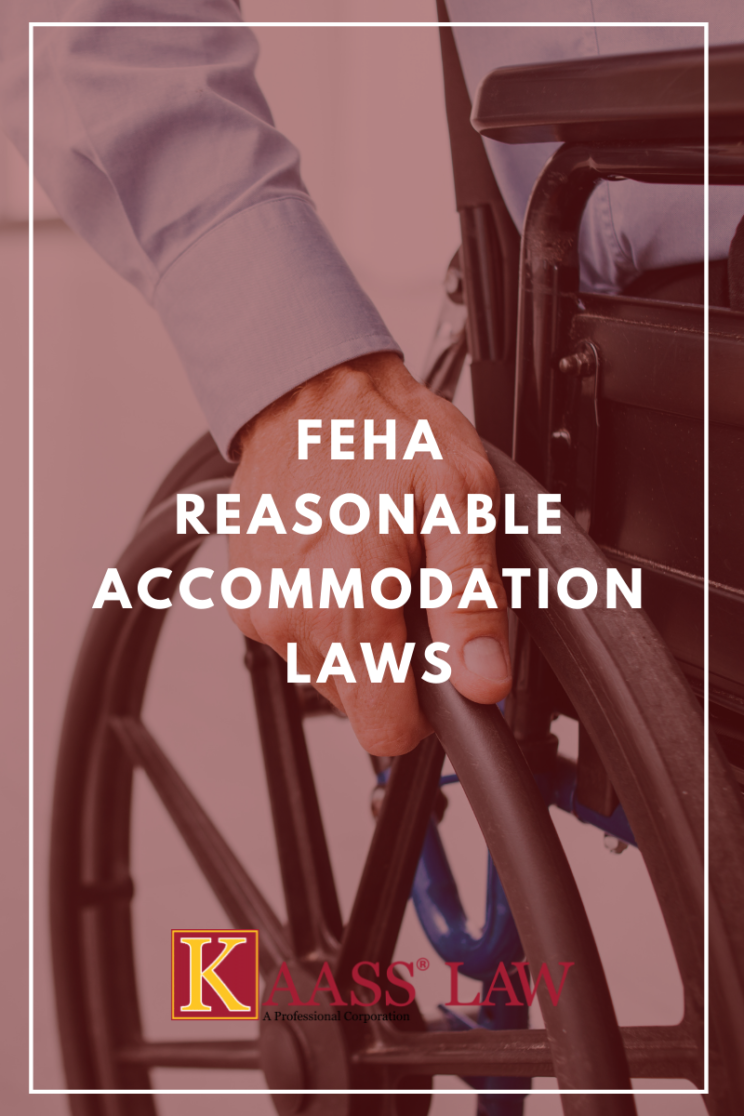According to the FFEHA, employers who have five or more employees are required to provide reasonable accommodation in California for individuals with a mental or physical disability to perform essential functions of their jobs.
Examples of Reasonable Accommodation in California
Reasonable accommodation in the workplace can include, but is not limited to:
- Making changes in a person’s work hours and schedule
- Leave of Absence
- Adapting a person’s workplace to allow for hearing, vision, or mobility restrictions
- Relocating the work area
- Purchasing new equipment which will better suit the person
- Allowing the person to park reserved parking spots
Exceptions to Providing a Reasonable Accommodation
An employer is not required to provide reasonable accommodation if the employer would suffer an undue hardship.
California Government Code Section 12926 (u) Undue Hardship
California Government Code Section 12926 (u) defines an undue hardship as, “an action requiring significant difficulty or expense.”
Factors of Undue Hardship
To determine whether an undue hardship exists the courts look at the following factors:
- The cost and the nature of the accommodation needed
- The total financial resources of the facilities involved in providing the reasonable accommodations
- The overall resources available to the employer
- The total size of the company and the number of employees
- The type and location of the covered entity’s facilities
- The type of operations of the employer entity
When the applicant or employee requests reasonable accommodations the employer is required to initiate an interactive process. Under California law, it is illegal for an employer to fail to involve in a timely and good-faith interactive process. The main aim of this process is to remove barriers that keep people with disabilities from performing jobs that they could perform with some form of accommodation.
How to Prove the Claim of Failure to Accommodate a Disability?
To prove the claim of failure to accommodate a disability a plaintiff must establish the following:
- A person has a disability recognized by the California Fair Employment and Housing Act; and
- A person is fully qualified and able to perform the essential functions of the position with a reasonable accommodation
For purposes of this claim, a person doesn’t have to establish that he/she suffered an adverse employment action as a consequence of his/her disability. According to the California FEHA, an employer’s failure to reasonably accommodate a person is a violation of the statute.
What Can a Person Recover in an Employment Discrimination Lawsuit for Failure to Provide Reasonable Accommodation?
Damages depend on the level of the discrimination and the type of harm to the employee and can include monetary damages, equitable remedies, and punitive damages
Money damages include:
- Back pay and front pay
- Higher-income from a promotion
- Pension benefits
- Bonus payments
- Emotional distress
- Pain and suffering
Employment Reasonable Accommodation Attorney
If you believe you have been denied a reasonable accommodation by your employer we invite you to contact our Los Angeles disability discrimination attorneys at (310) 943-1171 for a free consultation.

